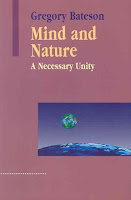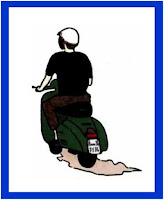Appearance:

|
|
" We have been involved in distance learning for a number of years. Camden University prides itself in providing tertiary education that is relevant in this age and era. We have a team of well qualified and experienced faculty and support staff who really care about their students and this is what makes us stand out from other distance learning University. We put students first. Our academic programs are modern, challenging and very relevant to the current needs of the industry, government and public life.
If you as student feel that you need a University which cares for you and where are the emphasis is on student welfare and quality education, the Camden University should be your choice. Make the Right decision and further your education at Camden University.
Capitalize on your experiences with a combination of experiential learning, seminars, tutorials, self study and via e-learning. You would be able to achieve your life’s ambition for an Academic Qualification. Now is this time and take proactive actions to participate our programs. |
|
Substance:
"Got you. You're mine now. For the rest of the day, week, month, year, life. Have you guessed who I am? Sometimes I think you have. Sometimes when you're standing in a crowd I feel those sultry, dark eyes of yours stop on me. Are you too afraid to come up to me and let me know how you feel? I want to moan and writhe with you and I want to go up to you and kiss your mouth and pull you to me and say "I love you I love you I love you" while stripping. I want you so bad it stings. I want to kill the ugly girls that you're always with. Do you really like those boring, naive, coy, calculating girls or is it just for sex? The seeds of love have taken hold, and if we won't burn together, I'll burn alone."
"Took a charter flight on a DC-10 to London. Landed at Heathrow. Took a cab to the city center. Don't let people lie to you: hostels are for the ugly. I'm staying in Home House, the most beautiful hotel in the world. Called a friend from school who was selling hash, but she wasn't in. Met a couple of Brits who take me to, of all places, Camden Street. I flirt a bit at the Virgin Megastore, buy some CDs, then follow some girls with pink hair. I wandered around trying to get laid, until it started to rain, then went back to Home House. Ministry of Sound is dead, so I go to Remform - but it's Gay Night. I find the one hetero girl in the place and we dry hump on the dance floor. We cab it back to Home House. I strip her clothes off, suck her toes, and we fuck. I hung out for four or five days. Met the world's biggest DJ, Paul Oakenfold. Kept missing the Changing of the Guards. Wrote my mom a postcard I never sent. Bought some speed from an Italian junkie who was trying to sell me a stolen bike. Smoked a lot of hash that had too much tobacco in it. Saw the Tate. Saw Big Ben. Ate a lot of weird English food. It rained a lot, it was expensive, and I'm jonesing... So, I split for Amsterdam. The Dutch all know English, so I didn't have to speak any Dutch - which was a relief. I cruise the Red Light District. Visit a sex show. Visit a sex museum. Smoke a lot of hash. I meet a Dutch TV actress and we drink absinthe at a bar called Absinthe. The museums were cool, I guess. Lots of Van Goghs and the Vermeers were intense. Wandered around. Bought a lot of pastries. Ate some intense waffles. We bought some coke and I cruised the Red Light District, until I found some blonde with big tits that reminds me of Lara. I gave her a hundred guilders. In the end, she pulls me out, and I cum between her tits, even though I'm wearing a rubber. Afterward we made small-talk about AIDS, her Moroccan pimp, and herself. I wake to the sound of a wino singing. It's 8 AM and hot as blazes. I pretend to ice-skate around Central Station, while someone plays the sax. Trade songs with a Kiwi girl... Then split for Paris by train. Wander the Champs-Elysees. Climb the Eiffel Tower for only seven francs, because the ticket machine was broken. Got the hang of the Metro, took it everywhere. Went to a Ford model party and hooked up with a Romanian model named Karina. She chugs my cock at the Mariott Champs-Elysees, which is good. We played billiards, went shopping. I think she gave me mono. Drove a Ferrari that belonged to a member of the Saudi royal family. Made out with a Dutch model in front of the Louvre. Saw the Arc de Triomphe and almost became road-kill crossing the street... "Oakie" invites me to Dublin, so I catch an Aer Lingus flight and stay at the Morrison. Dublin rocks like you can't imagine. Oakenfold lets me spin some discs with him. Irish girls are as small as leprechauns. I swap hickeys with a drunk woman. After groping my abs and calling me "Mr. L.A.", she strips for me in the bath room of the club. Sneak into the Guinness factory and steal some stout so good my dick goes hard... I fly to Barcelona, which was a low-rent bust. Too many fat American students. Too many lame meat markets. I dropped acid at the Sagrada Familia, which was a trip to say the least. Cruise up the coast to the Museo Gala Dali, but had no more acid, which sucked. Some girl from Camden calls me on my cell, so I let her listen to the church bells in Cadaques. Canta Cruz is beautiful, but there are no girls here, just old hippies... So, I went to Switzerland where I, ironically, couldn't find anyone who had the time. Took the Glacier Express up the Schilthorn, which is beautiful in a way I can't describe... Euro Pass into Italy and ended up in Venice, where I met a hot girl who looks like Rachael Leigh Cook and speaks better English than I do. She's living for a year on only five dollars a day. We gondola around, buy some masks. She think's I'm a capitalist, because my hotel room costs more for one night than she's spending her entire trip. But she doesn't mind it so much when I pay the bills... I ditch her and hook up with a couple who obviously want a 3-some. Too much tension there, but the doofus offers to drive me to Rome, an offer I jump at. Traffic is bad and we're stopped for hours without moving. The wife turns out to be a freak. The guy starts to wig out on me. It's like a Polanski film... We stop for a while in Florence, where I see some big dome. A bomb goes off and I lose the weird couple, which is probably for the best... Ended up in Rome, which is big and hot and dirty. It was just like L.A., but with ruins. I went to the Vatican, which was ridiculously opulent. Stood for two hours to get into the Sistine Chapel, which - now that it's been cleaned - looks fake. I meet two under-age Italian girls who I try to talk into fucking each other while I jack off onto them. Bored, I buy them some ice cream instead. My hotel has a gym, so I work out. I bump into some guy from Camden who says he knows me, but I'm sure that he's a fag, so I lose him. I try to fart and instead shit my pants. Back in my hotel room, I masturbate and have a pain in my groin. That night, I dream about a beautiful girl, half in water, stretching her lean body. She asks me if I like it and I tell her she can clean fish with it. I don't know what it means, but I wake well-rested, masturbate in the shower, and check out... I make my way back to London and hang out in Piccadilly Circus. Hmm. Palakon. I swap shirts with some upper-crusty Cambridge chick. Hers was an Agnes B., mine a Costume Nationale. She acts stuffy and prudish, but is really wild underneath it all. She barely looks at my abs, though she wants to. The next day, I drop some acid and get lost in the subway for a full day and can't find my way out. I meet a cute girl who lets me jack off onto her as long as no cum gets onto her Paul Smith coat. We get stoned while listening to Michael Jackson records and the next morning I wake up talking to myself. I have a big bump on my head from flailing in my sleep. I get my stuff and barely make my plane back to the United States... I no longer know who I am and I feel like the ghost of a total stranger."






























